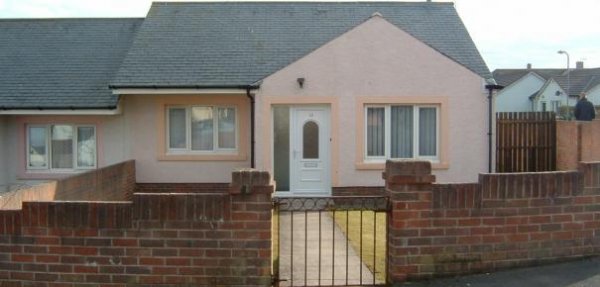Jul 1st 2020, 14:43
Blog 1st July 2020
In this blog I consider Boris Johnson’s ‘build, build, build’ speech & the affordable housing programme in England; the English housing sector’s ‘Homes at Heart’ campaign; the Scottish Federation of Housing Association’s campaign for affordable homes; the English Regulator of Social Housing’s request for updated business plans from housing associations; Housing Association Finance in Wales; Webinars and Training.
Boris Johnson appears to have caused some confusion about the affordable housing programme in England this week. The budget for the five years 2021/22 to 2025/26 is £12.2billion. This is made up of £2.0billion allocated by Theresa May, £9.5billion allocated in March by Rishi Sunak and a £0,7billion underspend carried forward from the current programme.
Speaking in Dudley yesterday, Boris Johnson said that the government would ‘build, build, build’ but documents released following the speech said that the programme would be spent over an eight-year period. This implied a reduction in funding rather than an increase, but a government spokesman then intervened to say that:
“The £12billion will be spent over the next five years and this will deliver up to 180,000 new affordable homes. The majority of homes will be built within the first five years and the rest by 2028/29. This is in line with what was announced at the Budget – there has been no cut in funding or delay in delivery.”
The government also stated that the £2billion allocated by Theresa May would be spent on longer-term developments that may not complete until 2029; and that some of the budget would be spent on a pilot scheme for 1,500 ‘First Homes’ - a scheme to sell homes to first time buyers at a 30% discount.
So, I think some questions remain including:

New affordable housing built by Impact Housing Association in Salterbeck, Cumbria.
We are told that the Ministry for Housing, Communities & Local Government will publish details of the programme soon. However, I think some things are already clear:
The housing sector, including the Chartered Institute of Housing, Association of Retained Council Housing, National Federation of ALMOs and the National Housing Federation, has come together to launch 'Homes at Heart', a campaign and coalition calling for a once-in-a-generation investment in social housing. In launching the campaign, they stated that:
“Everyone knew there was a shortage of social homes before we were hit by COVID-19, but in the last four months, the need has become even more obvious. Thousands of rough sleepers, taken off the streets, lack access to permanent housing. Many key workers, whether in hospitals, care homes or supermarkets, struggle to pay their housing costs on inadequate incomes. A large proportion of private renters, who might have hoped to save the deposit needed to buy a home, have instead been struggling to pay their landlords to ensure they don’t lose their tenancies when the pandemic ends.
“Our case to the government is that investing in affordable housing is not only one of the best ways of boosting the economy, but it addresses a major need which the COVID-19 crisis has made more prominent… housing associations and councils not only have shovel-ready projects to meet a range of new needs, but can invest in their existing stock and continue the task of bringing it up to the standards required to meet the government’s carbon reduction goals.”
“That’s why we have written to the Chancellor asking him to put social homes at the heart of the recovery - as a driver of economic and social prosperity, and an anchor for strong communities.”

The 'Homes at the Heart' logo
Similar arguments are being made in Scotland where the Scottish Federation of Housing Associations, Chartered Institute of Housing (Scotland) and Shelter (Scotland) have published a report that calls for 53,000 affordable homes to be built over five years. Sally Thomas, Chief Executive of the Scottish Federation of Housing Associations wrote in ‘Inside Housing’ that:
“We can build back better with an ambitious plan for affordable housing at the heart of Scotland’s recovery. Fundamental to this is a commitment from all parties to building the 53,000 affordable homes the country needs.”
I hope the Chancellor and the Scottish Government will listen!
Meanwhile, the Regulator of Social Housing is asking housing associations to update their business plans in the light of the coronavirus pandemic and submit financial forecast returns by the end of September. Their intention is to use this information to assess the impact that the coronavirus pandemic is having on housing associations and then to decide whether there should be any changes to viability gradings.
The coronavirus pandemic is having an adverse effect on the finances of housing associations. As Will Perry, Director of Strategy at the Regulator of Social Housing told ‘Inside Housing’:
“Some will be financially weaker as a result of the crisis, with arrears rates going up, prices going up, and that may feed through into viability grades.”
This is likely to lead to some viability down-gradings, probably followed by regulatory intervention and further mergers.
I have just published a series of briefing papers on Housing Association Finance in Wales. They provide an introduction and overview of this important subject. They should be of interest to anyone who needs a working knowledge of Housing Association Finance in Wales, including board members, housing managers, tenant representatives and new finance staff. There are three papers covering revenue, capital, and technical aspects. To view or download your copies, please click the links below:
We will be holding more webinars from July to September. For further information or to make a booking, please click the links below: